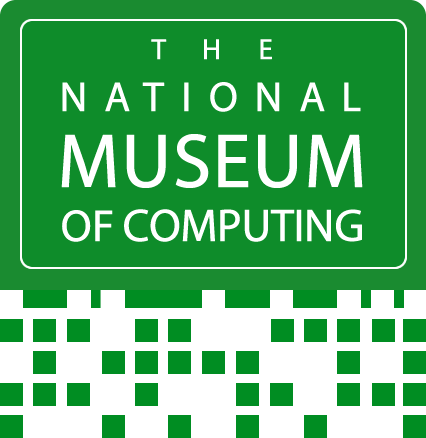Celebrate the 60th anniversary of a British computing success with Virtual Flossie – The National Museum of Computing’s new virtual experience and exhibition
/Join us for an in-person event on April 30th when TNMOC unveils an interactive online visitor experience celebrating the anniversary of one of the first commercially successful British computers.
Virtual Flossie is a 3D implementation of the ICT 1301 – a British-made computer built on pioneering transistor and memory technologies that revolutionised computing. The 1301 also featured an award-winning design that earned it appearances in TV and films including James Bond and Doctor Who. Two hundred were sold but just four remain, with the first – that would be named “Flossie” – dodging the scrap heap three times to find a home at The National Museum of Computing.
Virtual Flossie gives users the chance to get hands-on experience of the ICT 1301 through a browser. Users can load programs from virtual punched cards or, if they choose, visit the Museum to output results to physical cards that can be processed on our period punched card machines!
You can try Virtual Flossie, here: https://www.tnmoc.org/virtual-flossie
Virtual Flossie’s April 30th event will include:
Launch of an online exhibition taking visitors on a journey through the Flossie and ICT 1301 stories. Among those appearing are Dame Stephanie “Steve” Shirley – the businesswoman and philanthropist who played a crucial role in delivering the ICT 1301.
A live Q&A with those who operated the ICT 1301 and who restored Flossie.
The story of how that first ICT 1301 earned its name “Flossie”!
Jacqui Garrad, TNMOC museum director, said, “The ICT 1301 was a step change in British computing that deserved to be not just celebrated but re-created for a new generation.
“Computing has migrated to our pockets and our laptops but the ICT 1301 was a forerunner of these mass-produced systems. Flossie – generously donated to our museum by Roger Holmes – is especially significant: not just the first to be installed by a customer, it also possesses an incredible personal story and a history of surviving against the odds.”
Software programmer Martin Gillow, who built Virtual Flossie and whose previous work includes Virtual Colossus, called Virtual Flossie an eye-opening experience to build. “I’ve found out so much more about what goes on inside my computer today,” he said.
"I had to not only duplicate the hardware but to learn how to program using only a pencil, paper and punched cards and without any of the interactive tools I'm used to using as a professional programmer on modern computers. I think nothing of typing in a simple command to get something to print but I've had to learn the hard way how this used to be done. I have huge respect for anyone who had to work on these early computers," he said.
TNMOC’s April 30 Virtual Flossie event is open to the public and tickets are available here: https://www.tnmoc.org/events/2022/4/30/ict-1301-flossies-60th-anniversary-celebration . Full details of the day’s activities are below:
Schedule for the Day:
10:30: Museum opens to the public
11:00: Refreshments served in the Meeting Room
11:00-12:30: Visitors are invited to explore the Museum
12:30-13:30: Live Q&A with Stuart Fyfe and Roger Holmes (Livestreamed for virtual attendees)
13:30-14:15: Lunch/Networking in the First Generation Gallery
14:15-15:00: Live Q&A with Virtual Flossie's creator, Martin Gillow (Livestreamed for virtual attendees)
15:00-17:00: Visitors are invited to explore the Museum.
Refreshments and a buffet lunch will be provided.



